Search Results for
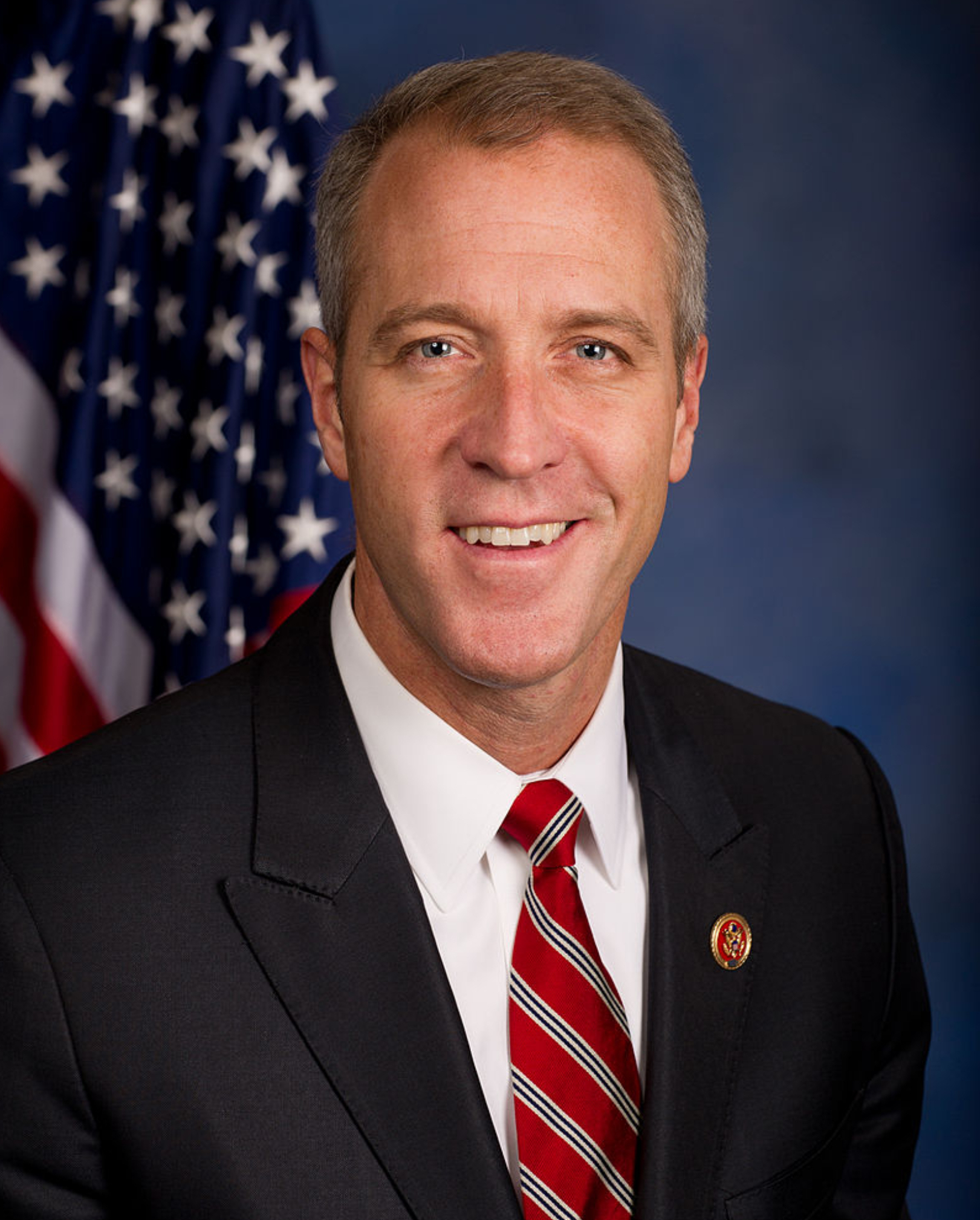
January 24, 2024
Press Release: The Revolving Door Project Calls On Senate To Delay Confirmation Of Sean Patrick Maloney Until Crypto Ties Can Be Investigated
The Senate Foreign Relations Committee Waved Maloney Through Without So Much As A Whisper About His Connections To Coinbase, The Cryptocurrency Firm That Has Employed Him Since His Nomination Was Announced.

November 30, 2023
Henry Kissinger: A War Criminal and Normalizer of Corruption
“It pales in comparison to the millions of deaths he was responsible for,” progressive foreign policy expert Matt Duss observed Thursday, “but Kissinger was also a pioneer in the normalization of corruption.”

March 07, 2022
Obscure Agency Must Deny Russian Oligarchs Possible Crypto Sanction Evasion Tool
While it is unlikely that an economy as large as Russia’s can be rerouted through present crypto infrastructure, there remains opportunity for targeted individuals and entities to leverage the industry’s weak compliance mechanisms to move some of their assets. The Treasury Department’s Office of Foreign Asset Control (OFAC) and Financial Crimes Enforcement Network (FINCEN), in conjunction with the White House’s National Security Council, need to ensure this does not happen.

September 29, 2021 | The American Prospect
How to Vaccinate the World
When United States Trade Representative Katherine Tai announced this past May that the U.S. would support the TRIPS waiver on COVID-19 vaccines at the World Trade Organization (WTO), we at the Revolving Door Project celebrated the administration’s decision as “a transformative, hopeful event.” The waiver proposal calls on the WTO’s Trade-Related Aspects of Intellectual Property Rights (TRIPS) Council to suspend intellectual-property protections on COVID-19 therapeutics, diagnostics, and vaccines to ensure materials necessary for combating the pandemic are “available promptly, in sufficient quantities and at affordable price to meet global demand.”

September 01, 2021 | Sludge
Biden Oil Envoy Advised Emirati Gas Firm and Owns Stock in Human Rights-Violating Companies
A financial disclosure reveals that Special Envoy for Energy Affairs Amos Hochstein operated a shadow consultancy with foreign fossil fuel clients.
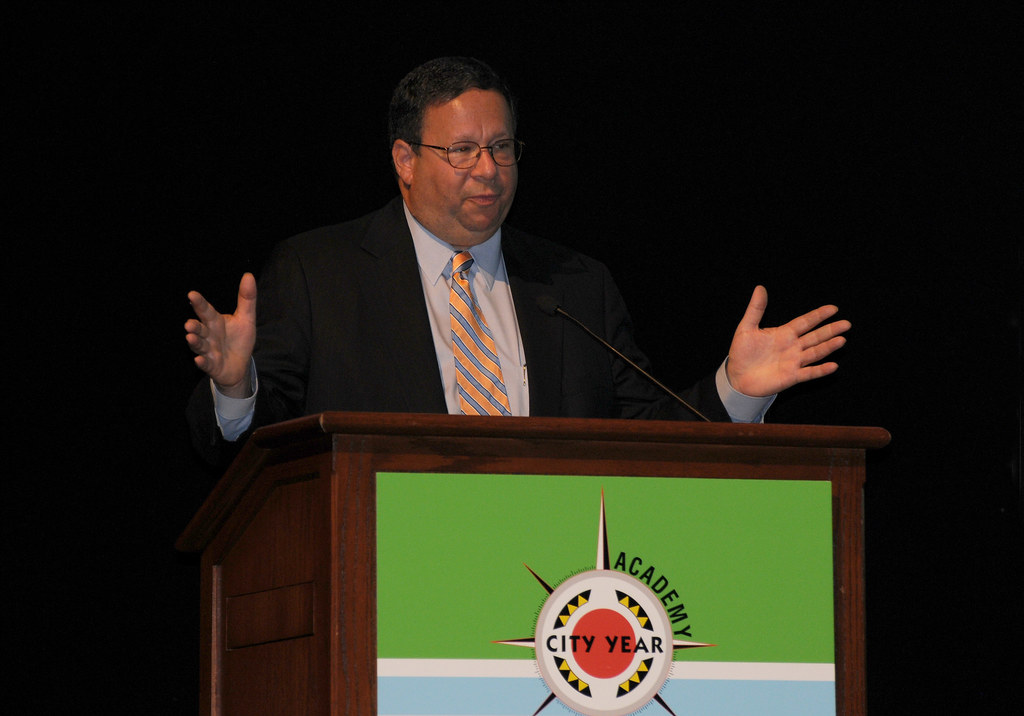
July 23, 2021 | American Prospect
It's Big Business As Usual For Biden's Ambassadorship Picks
If Biden is emerging as an anti-monopoly president, then why is he rewarding Cohen, a fixer for one of the go-to examples of monopoly power in America? More importantly, if he hopes to redeem American democracy from Trumpism, why is Biden rewarding the political strategist for a company that does not care about basic voting rights, especially for Black people?

May 10, 2021 | Independent Media Institute
The Tattered Insider Histories Of Our Possible Future Ambassadors
According to the Washington Post, Biden is finally getting around to scratching the backs of his friends and allies. This carries weight in D.C. gossip circles, given how well-connected Biden is there. So who made the cut?

April 15, 2021
Why Is Politico's Ryan Heath Carrying Water For Big Pharma Monopolies?
The world is currently at an inflection point – Western leaders can choose to continue blocking the TRIPS waiver and lock in a cycle of dependence or empower poorer countries to develop generic vaccines and build infrastructure that will safely put the pandemic behind us. Critiques of the TRIPS waiver claim that most poor countries lack the infrastructure to carry out vaccine operations – a paternalistic view that suggests that manufacturing capacity, supply chain management, and logistics are static in nature. The sooner we act, the more time poorer countries have to begin mobilizing resources needed to make generic vaccine development possible.

April 10, 2021
Revolver Spotlight: Amos Hochstein
Hochstein previously served in the Obama State Department, where his job was essentially to secure access to global oil fields on behalf of putatively American multinational Big Oil firms.

March 23, 2021
Revolver Spotlight: Elizabeth Rosenberg
Elizabeth Rosenberg, a lesser-known Obama-era official, is being considered to lead the Treasury Department’s Terrorism and Financial Intelligence unit. Her record designing painful economic sanctions, supporting fossil fuel industry-friendly policies, and helping powerful corporations gain close access to the highest levels of government is cause for alarm, writes Vishal Shankar.

March 18, 2021
Congress Must Examine Biden Admin Possibly Trading Vaccines For Anti-Migration Enforcement
The Revolving Door Project is outraged by yesterday’s news that the Biden administration has been pressuring the Mexican government into turning away migrants at the Mexico-Guatemala border. While this Trump style initiative would be appalling on its own, we are additionally concerned about the possibility that President Biden may have bartered millions of doses of the AstraZeneca vaccine to achieve his anti-migration goals.

March 17, 2021
Elias Alsbergas Vishal Shankar
Report 2020 Election/TransitionDefenseExecutive BranchForeign PolicyRevolving Door
The Industry Agenda: Military-Industrial Complex
A powerful collection of weapons manufacturers and defense contractors are shaping American foreign policy by lobbying policymakers and funding hawkish think tanks to keep U.S. defense spending the highest in the world. Their influence-peddling efforts prioritize the defense industry’s profits over countless lives and pressing domestic priorities like universal healthcare. Our Elias Alsbergas and Vishal Shankar explain how the military-industrial complex seeks to influence the executive branch and which defense industry allies are seeking jobs in the Biden Administration.
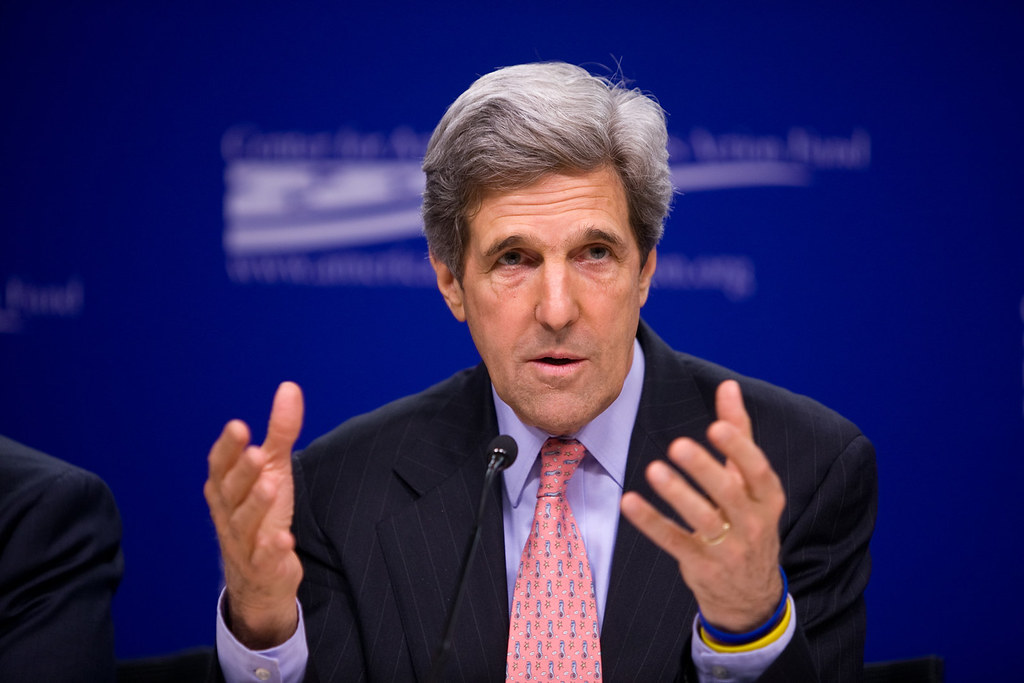
March 08, 2021
Attn John Kerry: Mark Gallogly Is Loyal To Profit, Not Climate
John Kerry, President Biden’s international “Climate Envoy”, appears to want bold climate change policy. Kerry was a leader in developing the framework for the first UN climate talks in 1992, co-authored cap-and-trade legislation back in 2009 when it could have possibly been useful, and was a major driver of the 2015 Paris Agreement.
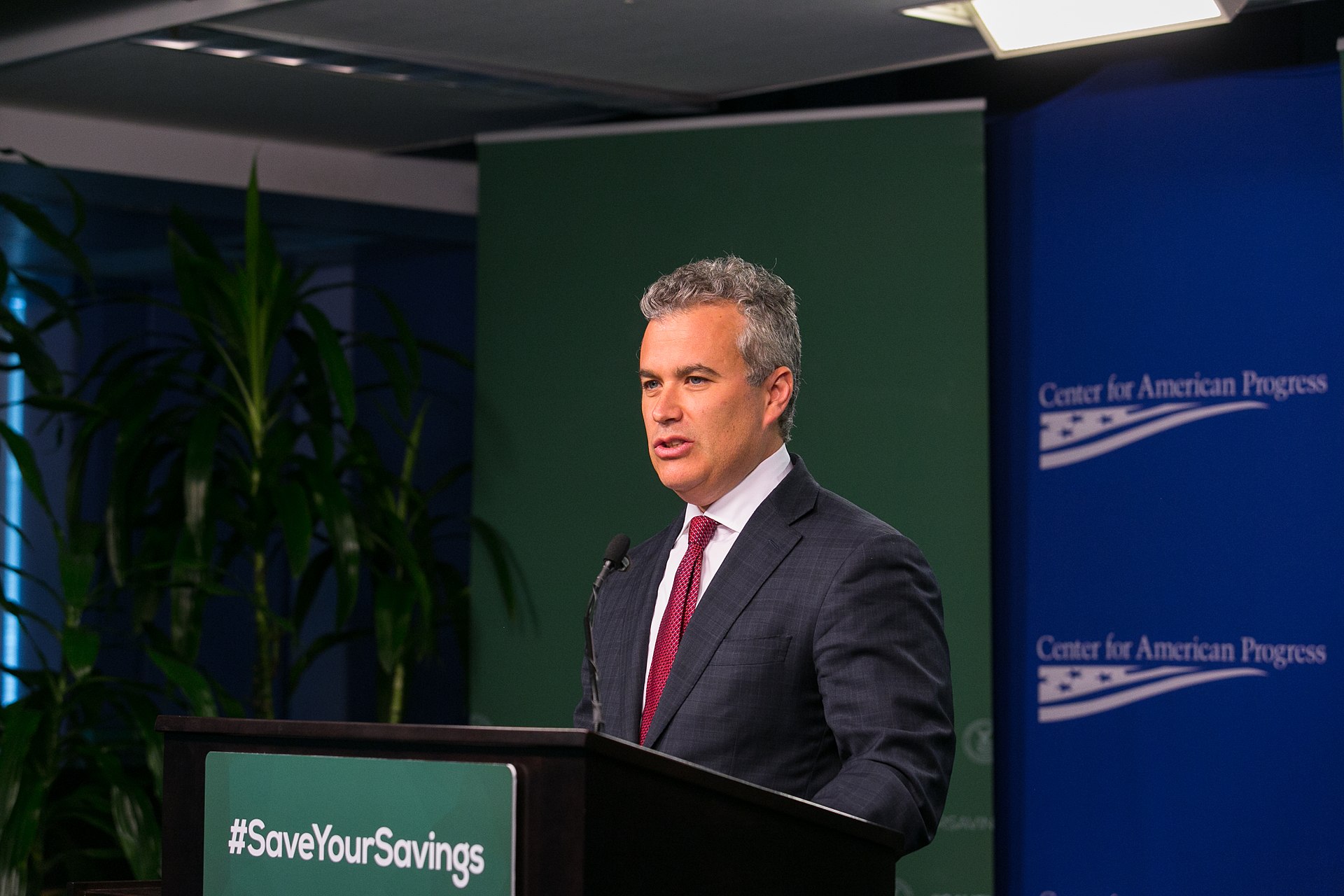
March 01, 2021
Zients Must Open-Source Vaccines To Prove Independence And Seriousness
As the United States approaches a full year of COVID-19-induced lockdowns, the Revolving Door Project and the Center for Economic and Policy Research called on the White House’s COVID-19 task force director Jeffrey Zients to demand that Pfizer, Moderna, and other American pharmaceutical firms open-source their COVID-19 vaccines.
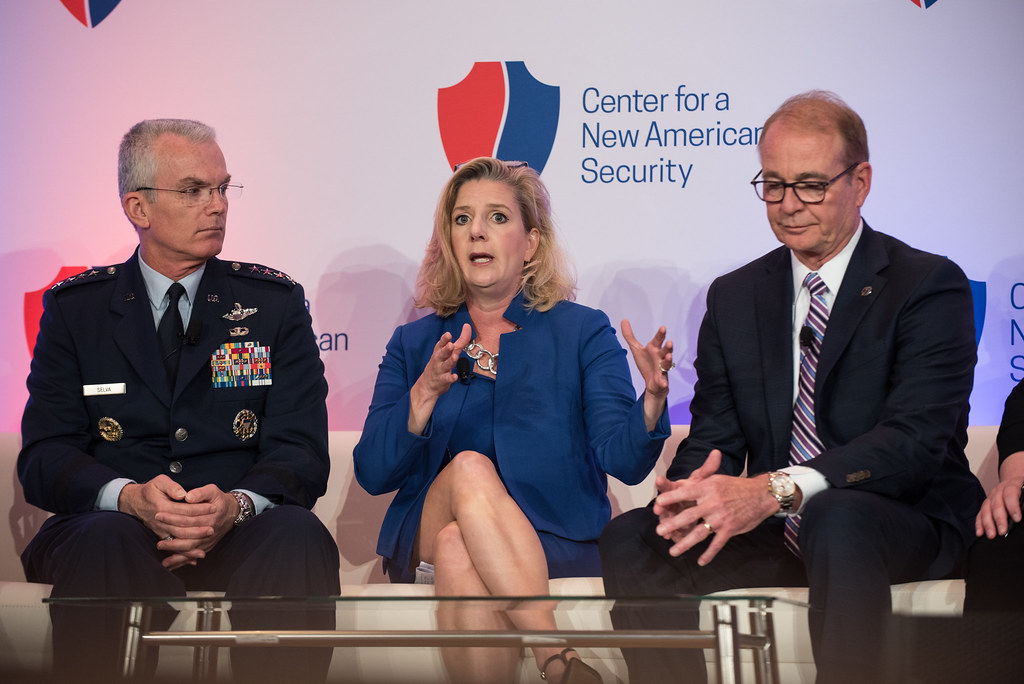
February 22, 2021 | Responsible Statecraft
American Primacy On The Menu For Big Industry Donors At CNAS
The Center for a New American Security (CNAS), a foreign policy think tank with at least 16 alumni in the Biden administration, has repeatedly published reports that directly promote the interests of its donors — including defense contractors, fossil fuel companies, and foreign governments — without disclosing their support. These conflicts of interest raise larger questions about what CNAS’ core philosophy of “extending American power” truly means.
